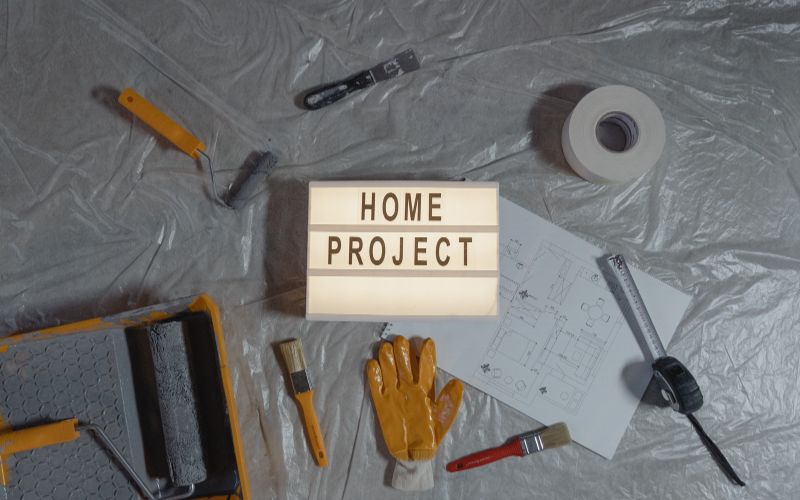As we move into summer, homeowners look to complete renovations: before you hire a contractor, learn to recognize the signs of a scam.
Adding a room, renovating a basement, or doing some much-needed repairs around your home can be a big undertaking. Finding a trustworthy contractor is an important first step. Scammers will promise to do the work, but leave you and your home worse off than when you started. They may do shoddy work, damage your home, overcharge you, or just take your money without performing any services. So how do you tell the difference between a trustworthy contractor and a scammer? Before you hire a contractor, learn how to recognize the signs of a home improvement scam.
Red Flags of the Scam
How can you tell if a contractor might not be reputable? Here are some tactics scammers use:
- Scammers knock on your door looking for business because they are “in the area.”
- Scammers say they have materials left over from a previous job.
- Scammers pressure you for an immediate decision.
- Scammers ask you to pay for everything up front or only accept cash.
- Scammers ask you to get any required building permits.
- Scammers suggest you borrow money from a lender they know.
How to Avoid the Scam
Here’s some advice to help protect yourself and your money:
- Consider only contractors who are licensed and insured. Check with your state or county government to confirm a contractor’s license, and ask the contractor for proof of insurance.
- Get contractor recommendations from people you know and trust.
- Check with the local Home Builders Association and consumer protection officials to see if they have complaints against a contractor. Also search online for the company’s name with words like “scam,” “review,” or “complaint.”
- Read reviews with a critical eye. Read customer reviews to find out more about the contractor and use online rating websites you trust to see what others are saying about the contractor.
- Get multiple estimates. A written estimate should include a description of the work to be done, materials, completion date, and the price. Don’t automatically choose the lowest bidder. And ask for an explanation if there’s a big difference among the estimates.
- Read the contract carefully. Contract requirements vary by state. Even if your state doesn’t require a written agreement, ask for one. Before you sign a contract, make sure it includes
- the contractor’s name, address, phone number, and license number
- an estimated start and completion date
- any promises made during conversations or calls related to issues such as the scope of work and the cost of labor and materials
- a written statement of your right to cancel the contract within three business days, if you signed it in your home or at a location other than the seller’s permanent place of business
And, make sure all blank spaces are filled in.
- Don’t pay the full amount for the project up front. Some states actually limit the amount of money a contractor can ask for as a down payment. Contact your state or local consumer agency to find out the law in your area. And never make the final payment until the work is done and you’re satisfied with it.
What about the Home Improvement Loan Scam
Sometimes, contractors will not just scam you through the work they do — or don’t do. Sometimes, they’ll actually set up a scam that ends with a loan against your home.
Here’s how it works: a contractor calls or comes to your door. He offers a deal to install a new roof or remodel your kitchen. He says he can arrange financing through a lender he knows. After he starts work, he asks you to sign papers. They may be blank — or he might hustle you along and not give you time to read through them. Later, you find out you’ve agreed to a home equity loan with a high interest rate, points, and fees. What’s worse, the work on your home isn’t done right or isn’t completed, and the contractor — who may already have been paid by the lender — has stopped returning your calls.
To avoid a loan scam
- Never agree to financing through your contractor without shopping around and comparing loan terms.
- Never agree to any loan without understanding the terms of the loan and knowing whether you can make the payments.
- Don’t sign a document you haven’t read, is in a language you don’t understand, or that has blank spaces. If you talk with a salesperson or contractor in a language other than English, depending on where you live and what you’re buying, you may be entitled to get a copy of the contract in that language. This lets you read and understand the contract before you sign the English version.
- Don’t let anyone pressure you into signing any document.
- Never transfer your deed to anyone without consulting an attorney, a knowledgeable family member, or someone else you trust.







